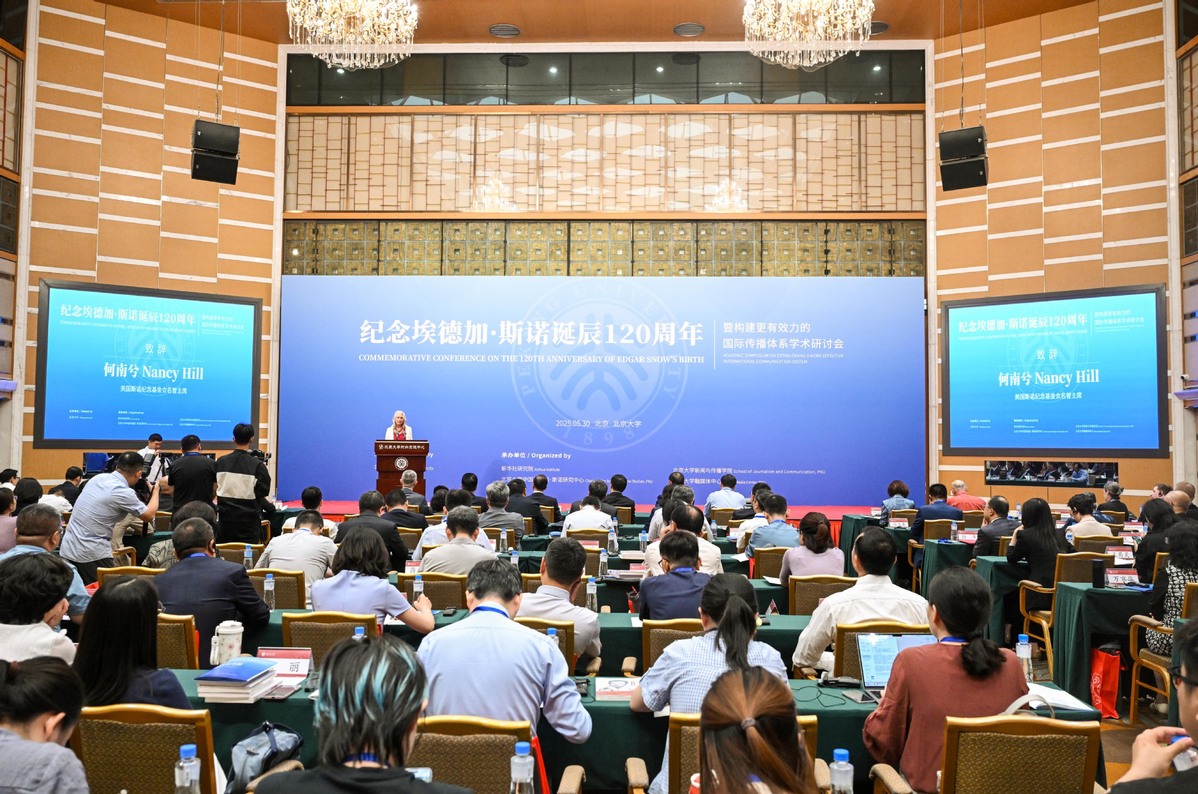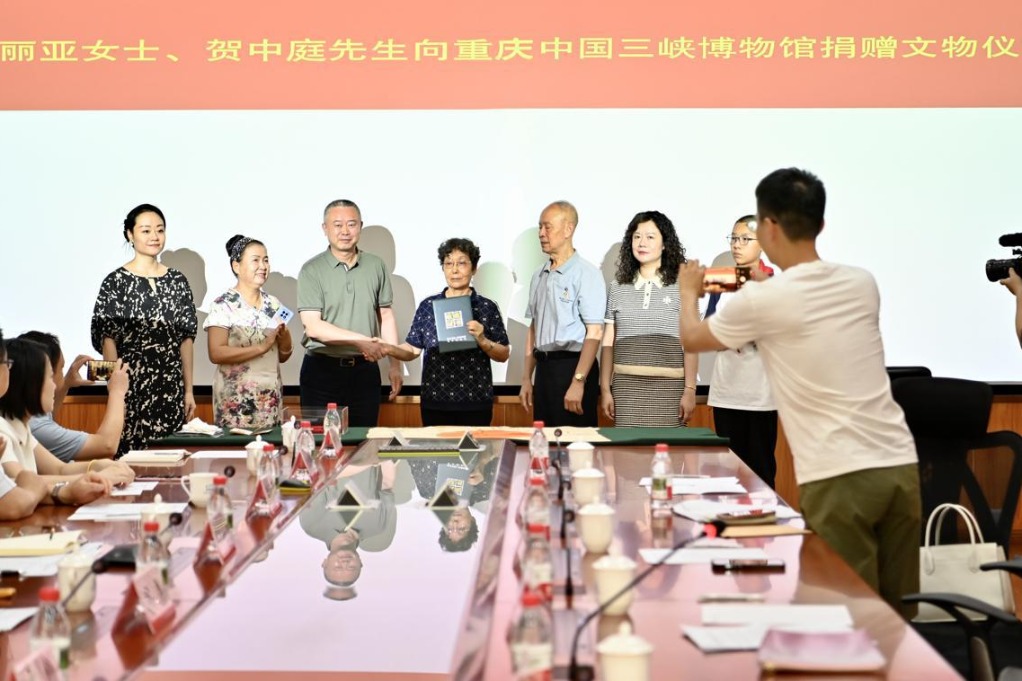Media encouraged to bring China and world closer


Media workers should break free from ideological constraints and commit to truth and integrity, much like journalist Edgar Snow from the United States did in his reports on China more than eight decades ago, experts said on Friday.
Such an approach could foster understanding and friendship between Chinese people and the rest of the world, they said.
"Snow's legacy is rooted in his belief in the value of cross-cultural understanding and grounded in a sense of ethical integrity. Today, those ideals are just as critical," said Samuel Colin Maclean, a relative of Edgar Snow and a representative of Harvard University's Fairbank Center for Chinese Studies.
Snow is best known for his journey across the Communist Party of China's revolutionary base in Shaanxi province in the 1930s and his resulting book, Red Star Over China.
"Snow saw himself neither as a propagandist nor an apologist. He believed in the power of writing to illuminate lives and mysteries, not to spin stories for ideological purposes," Maclean said during a symposium held by Peking University on Friday for the 120th birth anniversary of Snow.
While terms like integrity and truth can feel increasingly slippery in current times, Maclean emphasized the significance of genuine communication.
Nancy Hill, honorary president of the Edgar Snow Memorial Foundation, said that Snow was committed to fully immersing himself in the culture and lives of China to write extensive reports.
Snow provided many lessons for achieving international communication with his curiosity, bravery and open-mindedness, she said.
Tong Xiaoling, vice-president of the China Public Diplomacy Association, said that Snow's greatness lies in his ability to transcend the rigid ideological perspectives of Western journalists and overcome obstacles to recount revolutionary movements of the Chinese people.
"His pursuit of human advancement and his capacity to transcend cultural barriers lie at the very core of effective international communication," she said.
Tong called on Chinese journalists to seek truth, build empathy and enhance mutual trust when sharing stories of Chinese modernization and the Chinese people.
She added that while artificial intelligence has facilitated delivering content to audiences more efficiently, new technologies have also raised the risk of spreading misinformation and posing challenges to maintaining the authenticity and credibility of international communication.
"It is important to proactively address these issues," she added.
wangxiaoyu@chinadaily.com.cn
- Investigation team set up after deadly bridge construction accident in NW China
- Two giant pandas welcome their first visitors at new home in Harbin
- China's V-Day parade to highlight peace, pledge to defend international fairness, justice
- A voice of Shandong University of Technology heard in Russia
- 12 dead, 4 missing after bridge collapses in Qinghai
- Central delegation visits people in Lhasa





































